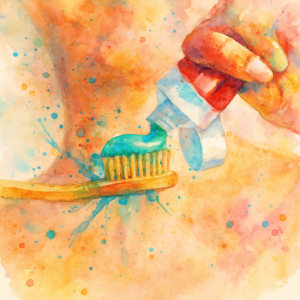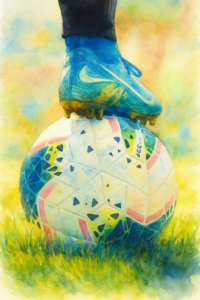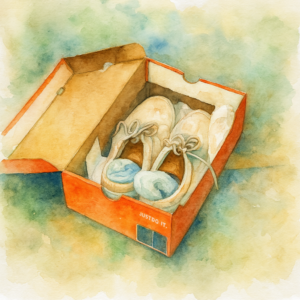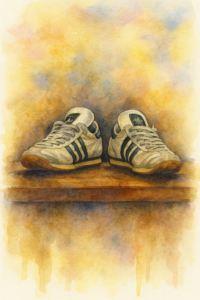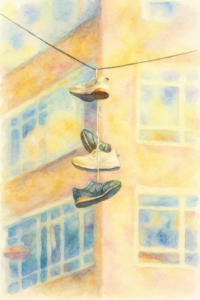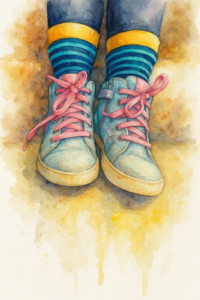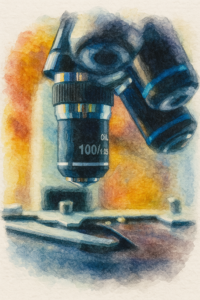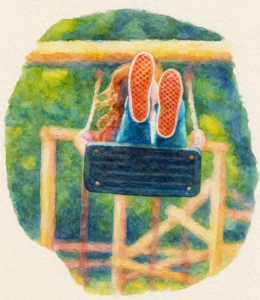Learn French with this clip from Les P’tits Bateaux. Find the full episode here. We do not own the content. The above audio sample and transcription is from Les P’tits Bateaux podcast. We do not own the content. Listen to the entire episode here. like crazy What’s opening up for you with this clip? Comment…
Start quiz, type what you hear, then join the conversation.
Did you find this one challenging or easy? Did you hear something diffferent? What surprised you? What levels did you complete? Comment below and share what’s opening up for you with this quiz.
Learn French with this clip from Les P’tits Bateaux. Find the full episode here. We do not own the content.
The above audio sample and transcription is from Les P’tits Bateaux podcast. We do not own the content. Listen to the entire episode here.
like crazy
What’s opening up for you with this clip? Comment below with what was surprising, easy, challenging and/or interesting.
The snippet in English
Find a translation of this snippet here, how much of this did you hear?
Et c’est tout bien enfermé dans la chaussure, donc on y va : on se développe à fond.
— Exactement. Il n’y a pas trop d’air, donc on ne va pas être détaché de la peau des pieds. Et donc là, c’est l’endroit idéal pour faire plein de petites bactéries qui, effectivement, peuvent donner ces mauvaises odeurs.
— Et c’est les bactéries qui quoi qui se décomposent ? Comment ça fait pour émettre une odeur ?
— Alors, c’est plutôt les pieds qui vont avoir déjà une transpiration, une sueur qui va sortir de la peau. Et dans cette sueur, les bactéries vont manger et détruire certaines molécules — certaines substances de la peau — qui vont avoir une odeur désagréable.
And it’s all locked up inside the shoe, so there you go: it grows like crazy.
— Exactly. There’s not much air, so it’s not going to be detached from the skin of the feet. And so that’s the ideal place for lots of little bacteria to grow, which can indeed cause those bad odors.
— And it’s the bacteria that decompose? How do they emit an odor?
— Well, it’s more that the feet are already sweating, and sweat is coming out of the skin. And in this sweat, the bacteria eat and destroy certain molecules—certain substances in the skin—which have an unpleasant odor.
The above translation from Deepl
What does “bien enfermé” mean?
bien enfermé means “well locked in” or “tightly shut in.”
Le chat est bien enfermé dans la maison, il ne peut pas sortir.
(The cat is safely shut inside the house; it can’t get out.)
Usage notes: Informal and descriptive. Bien adds emphasis, meaning “securely” or “completely.” Often used with people, animals, or objects kept safely inside a space.
Cultural note: In French, bien is frequently used for emphasis before past participles—bien fermé, bien caché, bien enfermé—to reassure, insist, or describe a thorough action.
What does “on y va” mean?
on y va means “let’s go” or “shall we go.”
Allez, on y va avant qu’il ne pleuve !
(Come on, let’s go before it rains!)
Usage notes: Very common and informal. Literally “we go there,” but used idiomatically to mean “let’s get moving” or “let’s start.” Often said to prompt action or departure.
Cultural note: Used constantly in everyday life — when leaving a place, starting a task, or encouraging someone to begin. Friendly, flexible, and widely understood across all regions.
What does “fond” mean?
fond means “bottom,” “depth,” or “background,” depending on context.
Il y a un message au fond de cette histoire.
(There’s a message at the heart of this story.)
Usage notes: Masculine noun. Versatile in meaning — can refer to physical depth (le fond de la piscine), emotional depth (au fond de moi), or the core of an idea (le fond du problème).
Cultural note: Often used in expressions like au fond (deep down), en fond (in the background), or de fond (fundamental). It adds nuance to emotional or intellectual reflection in French conversation.
What does “l’endroit” mean?
l’endroit means “the place” or “the location.”
C’est l’endroit idéal pour pique-niquer.
(It’s the perfect place for a picnic.)
Usage notes: Neutral and widely used in both spoken and written French. Refers to a specific point in space, physical or figurative. Masculine noun.
Cultural note: While lieu is more formal or abstract, endroit feels more personal or descriptive. Used in daily speech when talking about spots, venues, or areas someone has been or should visit.
What does “plein de” mean?
plein de means “lots of” or “full of.”
Il y avait plein de monde au concert hier soir.
(There were lots of people at the concert last night.)
Usage notes: Informal and very common in spoken French. Can replace beaucoup de in casual speech, though it’s less precise or formal.
Cultural note: Frequently used by both kids and adults in everyday talk. In written or formal French, beaucoup de or de nombreux is preferred. Plein de adds a friendly, relaxed tone.
What does “une transpiration” mean?
une transpiration means “perspiration” or “sweating.”
Après dix minutes de course, il était déjà en pleine transpiration.
(After ten minutes of running, he was already sweating heavily.)
Usage notes: More technical or formal than sueur. Refers to the process rather than the result. Often used in medical, scientific, or fitness contexts.
Cultural note: While sueur appears more in everyday speech and idioms, transpiration is the preferred term in health, hygiene, and product advertising (e.g. déodorant contre la transpiration).
What does “une sueur” mean?
une sueur means “a sweat” or “perspiration.”
Il avait une sueur froide en entendant la nouvelle.
(He broke out in a cold sweat upon hearing the news.)
Usage notes: Feminine noun. Often used in expressions like une sueur froide (cold sweat) or être en sueur (to be sweating). Refers to both physical and emotional reactions.
Cultural note: French often uses sueur in idiomatic phrases to convey stress, fear, or effort. Une sueur froide is especially common in storytelling or dramatic moments.
Les P’tits Bateaux Podcast
Official synopsis: Les enfants posent des questions, des spécialistes leur répondent. Jeunes (et moins jeunes !) peuvent poser toutes les questions possibles et imaginables directement par message vocal via franceinter.fr, sauf pendant les vacances.
I recently discovered this podcast from InterFrance and love it. It’s kids posing questions and the host brings in experts to explain. And it’s aimed at young French kids, not French learners. That’s my favorite kind of content. Being for French kids is what makes it so good.
You’ve got real people (a kid, a host, and an expert), all speaking real French — no AI generated stuff here. The kid asks a question, and then an expert explains it in short, clear language. There’s a ton of repetition, natural turns of phrase, and just enough challenge to keep your ears working.
And because it’s meant for French-speaking kids, the adults naturally explain things simply but not condescendingly. You get exposed to rhythm, tone, interjections (bah, ben, alors), and full sentences — but also some real dialogue dynamics. And that’s gold if you’re trying to move from textbook filler to actually speaking and thinking in French.
Improving your French Listening Comprehension with Podcasts
On this site, fast spoken French is finally accessible to all levels. The tool break podcasts into short clips each set to transcription fill-in-the-blank practice. My favorite practice in class is always dictées. While they can seem overwhelming at first, the confidence boost and skills payoff for doing the work pays off. They’re perfect for anyone at any level, from advanced students to those just starting.
We use podcasts and our practice exercises to make it possible for anyone, anywhere to immerse in French with fun and ease. Join us and enjoy French, one short clip at a time. Let’s learn together!
Make the most of the site:
- Daily Podcast Listening: Start your day with a French podcast from our collection. Choose episodes that align with your interests to keep it engaging.
- Active Listening Practice: As you listen, try to pick out key phrases and vocabulary. Use our daily quizzes to test your understanding and reinforce learning.
- Repeat and Shadow: Listen to the same podcast segment multiple times. Try to mimic the pronunciation and intonation to improve your spoken French.
- Note-taking: Jot down new words or phrases you encounter. Review these notes regularly to enhance vocabulary retention.
- Reflect and Respond: After each episode, summarize the main points in French, either in writing or aloud. This helps in consolidating your learning and improving your expressive skills.
- Read More:
- True Beginner or A1 Learners: discover tips learning with podcasts at an introductory level.
- Discover all the podcast clips on FrenchIRL organized by level.
- Top Tips: Here’s how I make the most of my own site.
I created the French In Real Life project because I wanted to understand more than just my teacher and youtubers who cater to learners. I wanted to understand the French I hear in France. I hope you can benefit as much as I have. Become a supporting member for access to all clips.
What’s opening up for you?
Comment below with what’s opening up for you with this clip. What do you love about this? What was challenging? What was easy? Share your learning progress below!
Learn French with this clip from Les P’tits Bateaux. Find the full episode here. We do not own the content. The above audio sample and transcription is from Les P’tits Bateaux podcast. We do not own the content. Listen to the entire episode here. like crazy What’s opening up for you with this clip? Comment…
Start quiz, type what you hear, then join the conversation.
Did you find this one challenging or easy? Did you hear something diffferent? What surprised you? What levels did you complete? Comment below and share what’s opening up for you with this quiz.
